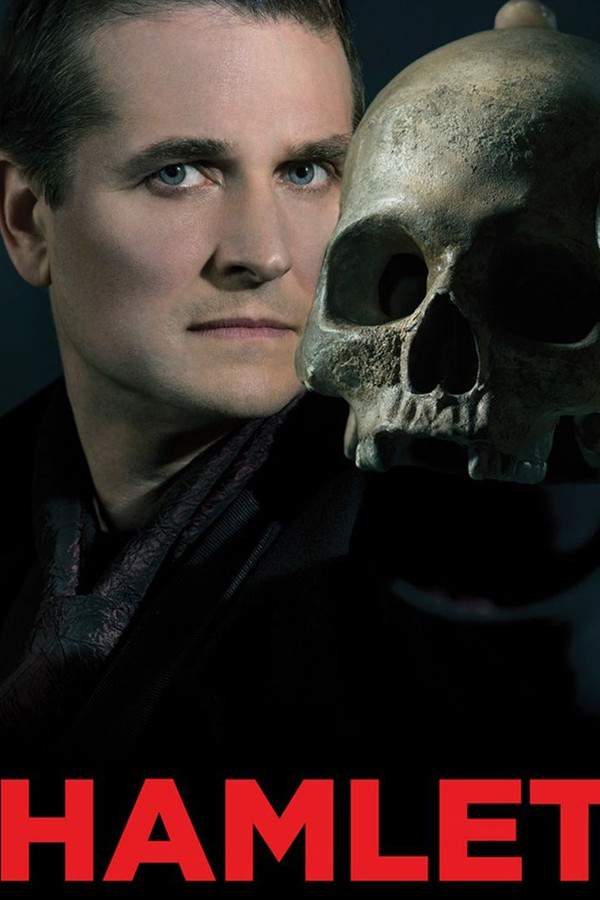All Is True 2018

In 1613, celebrated playwright William Shakespeare returns to his hometown of Stratford after his Globe Theatre burns down. He is confronted by a difficult past and a family he’s left behind, including his wife and daughters. Haunted by the loss of his son Hamnet, Shakespeare must reconcile with his failings as a husband and father. The playwright's journey leads him to uncover deeply buried secrets and lies that challenge his family's stability and force him to examine his own identity.
Does All Is True have end credit scenes?
No!
All Is True does not have end credit scenes. You can leave when the credits roll.
Meet the Full Cast and Actors of All Is True
Explore the complete cast of All Is True, including both lead and supporting actors. Learn who plays each character, discover their past roles and achievements, and find out what makes this ensemble cast stand out in the world of film and television.

Ian McKellen
Earl of Southampton

Judi Dench
Anne Shakespeare

Phil Dunster
Henry, the Student

Kathryn Wilder

Michael Rouse

Doug Colling
Douglas, Shakespeare's Servant

Eleanor de Rohan
Margaret Wheeler

Flora Easton

Freya Durkan
Young Judith Shakespeare

Jack Colgrave Hirst
Tom Quiney

Lolita Chakrabarti
Stratford Landlady

Matt Jessup

Sam Ellis
Hamnet Shakespeare
External Links and Streaming Options
Discover where to watch All Is True online, including streaming platforms, rental options, and official sources. Compare reviews, ratings, and in-depth movie information across sites like IMDb, TMDb, Wikipedia or Rotten Tomatoes.
Ratings and Reviews for All Is True
See how All Is True is rated across major platforms like IMDb, Metacritic, and TMDb. Compare audience scores and critic reviews to understand where All Is True stands among top-rated movies in its genre.

The Movie Echo Score
All Is True offers commendable performances and striking visual design but is hindered by its slow pacing and episodic structure. Critics and viewers note the film’s artful use of candlelight, shadowed interiors, and polished production design alongside uniformly strong performances. However, the narrative is frequently described as perfunctory and overlong, with limited dramatic momentum. Ultimately, the film registers as a well-crafted yet uneven portrait.
The Movie Echo Score Breakdown for All Is True

Art & Craft
Visual design emerges as a key asset in All Is True’s production. In terms of cinematography and direction, the film’s use of candlelight, shadowed interiors, and polished set pieces earns consistent praise. Observers acknowledge some shots linger excessively, and dim lighting occasionally impedes narrative clarity. Overall, the artful presentation secures the film’s most striking visual identity.

Character & Emotion
The performances constitute the film’s most consistently praised element. When it comes to acting and emotional resonance, critics highlight masterful work by Branagh, Dench, and McKellen, and many note Kathryn Wilder’s standout presence. Users commend the on-screen chemistry and nuanced portrayals of grief and familial tension. Overall, character work anchors the film with compelling and credible performances.

Story & Flow
The narrative pacing and structure represent a central weakness in All Is True. In terms of plot coherence and flow, the film is frequently described as episodic and perfunctory, with scenes that advance isolated themes rather than an integrated storyline. Multiple reviews cite sluggish tempo and excessive sentimentality as factors that weaken engagement. Overall, the story’s momentum feels uneven and restrained.

Sensory Experience
The film delivers a distinct sensory atmosphere anchored by its visual style. When it comes to sound design and visual cohesion, reviewers praise the understated color palette, composed wide shots, and thoughtful set lighting. Few refer to the musical score, but the overall acoustical presentation supports the film’s contemplative mood. Overall, the sensory experience is immersive yet occasionally muted.

Rewatch Factor
All Is True offers limited incentive for repeated viewings. In terms of rewatch value, its deliberate pacing and episodic structure are cited as factors that diminish subsequent enjoyment. While compelling performances and striking visuals can draw interest, the pronounced slow tempo and perfunctory narrative arcs offer few new insights on further viewings. Overall, the film’s replay appeal remains modest.

59
Metascore
5.7
User Score


73%
TOMATOMETER

66%
User Score

6.3 /10
IMDb Rating

61
%
User Score

3.1
From 2 fan ratings

3.00/5
From 2 fan ratings
Take the Ultimate All Is True Movie Quiz
Challenge your knowledge of All Is True with this fun and interactive movie quiz. Test yourself on key plot points, iconic characters, hidden details, and memorable moments to see how well you really know the film.
All Is True Quiz: Test your knowledge on the poignant tale of William Shakespeare's life and relationships in 'All Is True'.
What event marks the beginning of Shakespeare's return to Stratford-upon-Avon?
The Globe Theatre's fiery demise
The plague outbreak
His son's birth
His marriage to Anne Hathaway
Show hint
Full Plot Summary and Ending Explained for All Is True
Read the complete plot summary of All Is True, including all major events, twists, and the full ending explained in detail. Explore key characters, themes, hidden meanings, and everything you need to understand the story from beginning to end.
After the Globe Theatre is engulfed in flames during a performance of Henry VIII in 1613, a weary William Shakespeare, portrayed by Ian McKellen, returns to his home in Stratford-upon-Avon at the age of 49. He seeks to reconnect with his estranged wife, Anne Hathaway, played by Judi Dench. Their relationship has grown distant, having been strained by a long separation where Shakespeare spent most of their marriage in London while Anne remained a grounded country woman who struggles with literacy. Their bond has particularly suffered since the tragic loss of their son, Hamnet, who succumbed to the plague at the tender age of 11 while his father was away.
Shakespeare immerses himself in tending to the family garden, yet finds little success in this endeavor. The couple’s elder daughter, Susanna, is married to John Hall, a leading Puritan doctor, and is forced to suppress her true self to comply with his strict moral standards. When Susanna faces accusations of infidelity and the threat of public humiliation, Shakespeare boldly intimidates her accuser by claiming he knows of an African actor who would protect her honor fiercely. This ruse proves effective when the accuser ultimately fails to show up, leading to Susanna’s exoneration, much to Anne’s admiration for her husband’s unexpected prowess, despite his embellishments.
Meanwhile, Judith, Shakespeare’s outspoken younger daughter, wrestles with the constraints placed on women of her time. Bitter and feeling unloved compared to her deceased brother, she confides a secret to her father: she is the true author of the poems attributed to Hamnet—her words had merely been written in his hand as she lacks the skills to write herself. The family struggles to cope with the fallout, especially as Anne quietly agrees with the notion that Hamnet was not intellectually gifted.
The story takes a turn with a visit from the Earl of Southampton, Shakespeare’s former patron and the muse behind his 154 sonnets. Anne feels uneasy, suspecting there may have been romantic undertones to their relationship. During a poignant moment, Shakespeare shares his feelings through Sonnet 29, only to be met with Southampton’s ambiguous response that hints at shared sentiments.
As time passes, a sweet reconciliation occurs between William and Anne, leading to a renewed intimacy that transforms their marriage. Anne ultimately chooses to share their second-best bed with him, an act that signifies their regaining of love. Shakespeare also navigates Judith’s newfound willingness to marry Thomas Quiney, despite the past scandal haunting him, as Judith becomes pregnant, much to her father’s joy.
A shocking revelation arises when Shakespeare investigates the events surrounding Hamnet’s death, challenging the notion that the boy died from the plague. Torn between grief and anger, he probes his family’s secret, ultimately discovering that Hamnet drowned while trying to escape the truth regarding the poems. In a poignant reveal, Judith confesses that she only told Hamnet of her intention to claim authorship after which he mysteriously drowned, raising whispered suspicions of suicide. This emotional reckoning allows Shakespeare to finally confront his past and honor the memories of his beloved son more truthfully.
As April 1616 unfolds, Shakespeare engages in reflective conversation with fellow playwright Ben Jonson, however, he begins to feel unwell on his birthday. Meanwhile, Susanna initiates a surprise for Anne and Judith, teaching them to read and write as Anne uncovers her marriage certificate, triumphantly signing her name for the first time. Sadly, on this significant day, Shakespeare passes away, leaving behind a rich legacy and a family bound together in newfound literacy and understanding. At his funeral, the three women unite in remembrance, reciting “Fear No More” from Cymbeline, honoring his memory and acknowledging their growth in the wake of profound loss.
Uncover the Details: Timeline, Characters, Themes, and Beyond!

Coming soon on iOS and Android
The Plot Explained Mobile App
From blockbusters to hidden gems — dive into movie stories anytime, anywhere. Save your favorites, discover plots faster, and never miss a twist again.
Sign up to be the first to know when we launch. Your email stays private — always.
Watch Trailers, Clips & Behind-the-Scenes for All Is True
Watch official trailers, exclusive clips, cast interviews, and behind-the-scenes footage from All Is True. Dive deeper into the making of the film, its standout moments, and key production insights.
All Is True Themes and Keywords
Discover the central themes, ideas, and keywords that define the movie’s story, tone, and message. Analyze the film’s deeper meanings, genre influences, and recurring concepts.
All Is True Other Names and Titles
Explore the various alternative titles, translations, and other names used for All Is True across different regions and languages. Understand how the film is marketed and recognized worldwide.
Similar Movies To All Is True You Should Know About
Browse a curated list of movies similar in genre, tone, characters, or story structure. Discover new titles like the one you're watching, perfect for fans of related plots, vibes, or cinematic styles.
Quick Links: Summary, Cast, Ratings, More

What's After the Movie?
Not sure whether to stay after the credits? Find out!
Explore Our Movie Platform
New Movie Releases (2026)
Famous Movie Actors
Top Film Production Studios
Movie Plot Summaries & Endings
Major Movie Awards & Winners
Best Concert Films & Music Documentaries
Movie Collections and Curated Lists
© 2026 What's After the Movie. All rights reserved.
































